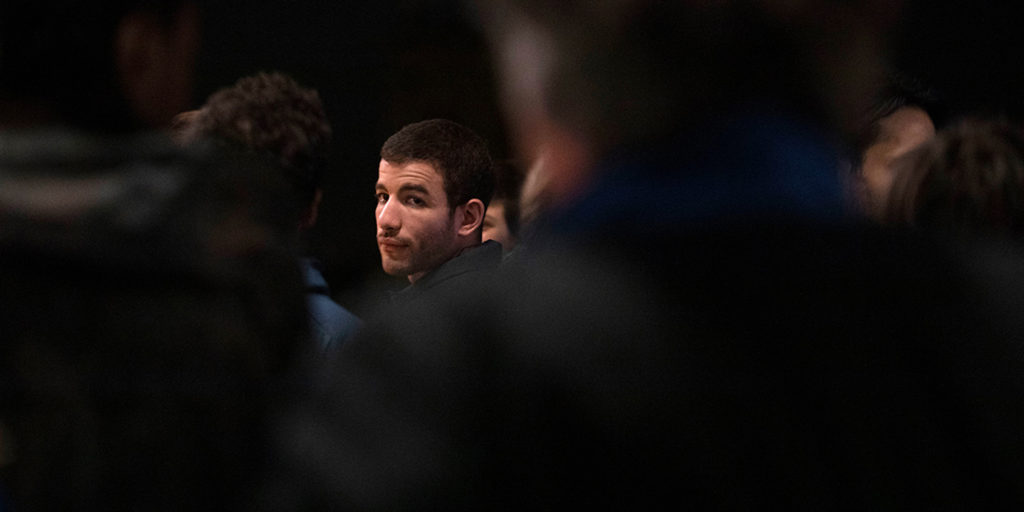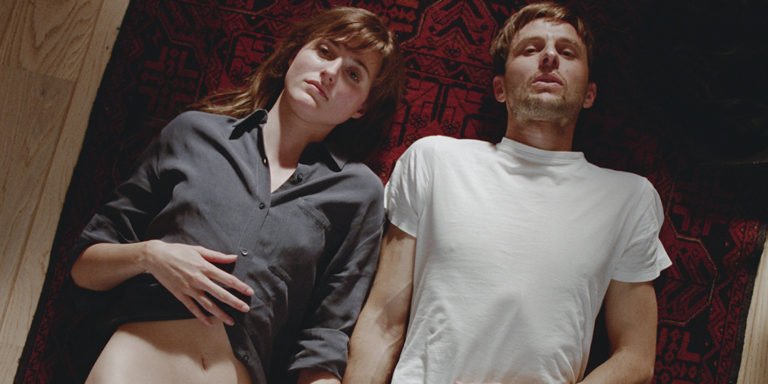The Worst Person in the World (2021 | Norway | 121 minutes | Joachim Trier)
By the close of the prologue of the Worst Person in the World we’ve witnessed Renate Reinsve’s Julie ditch a promising start in medical school to join a psychology program that she soon quits to take a stab at professional photography. An excellent but restless achiever, she flails to find a suitable path but throws herself into each of them wholeheartedly until she flakes. Similarly, a one night stand with Aksel, a well-known graphic novelist (Anders Danielsen Lie, also on this year’s festival circuit with Bergman Island when he’s not vaccinating Norwegians in his other life as a physician), turns into a long-term relationship the minute he tells her that his goals as he approaches middle-age life goals aren’t compatible with those of a woman on the verge of thirty.
The subsequent years prove him right, more or less, but director Joachim Trier generously affords her twelve more chapters and an epilogue. Shot naturalistically in Oslo’s summers of impossibly long northern twilight hours, we watch as Julie begins to confront the existential dilemma of how to make a life for herself through career, art, and relationships. A weekend away with Aksel’s family highlights chasms to come for a couple separated by more than a decade in age and reinforces her lack of interest in having children. As his career grows with new books and involvement in film adaptation, she settles into work at a bookstore, gets some notice with provocative online essays, and crashes a wedding reception after fleeing one of his galas.
It’s that sequence that introduces a new spark of possibility via Eivnd (Herbert Nordrum), tests the bounds of monogamy, and cracks open the film’s mode to include the magic realism of both overwhelming attraction and magic mushrooms. Julie’s kind of a mess but Trier’s never not on her side, allowing the tumultuous, sometimes hurtful, often hopeful cycles of her early thirties to be a source of humor and affecting drama. As Julie moves between new and old relationships and toward yet another new beginning, it’s easy to appreciate how this showcase of Reinsve’s talents earned her the Best Actress prize at Cannes.

Arthur Rambo (2021 | France | 121 minutes | Laurent Cantet)
Trier’s title may have been better suited to Laurent Cantet’s Paris-set exploration of the duality of the identity of Arabs in France. It opens with what would seem like a fantasy anywhere but France: a nation captivated by a sensitively written new novel and an hourlong interview with a young author, Karim D, whose “autofiction devoid of narcissism” drew from his Algerian mother’s immigrant experience. The television appearance goes off smashingly and Karim is the toast of the town, his publishing house, and the whole internet. Extra copies, new translations, and even a film deal are in the works.
His success lasts for a matter of hours. While being fêted on a dance floor with a view of the Eiffel Tower by his friends, agents, and fellow authors, the internet turns up mountains of truly horrible tweets. Misogynistic, homophobic, and anti-semitic provocations flash across screen as fans of his book and subscribers to his socially-progressive web channels suddenly discover that Karim was the anonymous writer of widely-followed Terrible Tweeter “Arthur Rambo” (playing on the transgressive French poet Arthur Rimbaud).
In emergency meetings, Kareem assures his stodgy (and frankly negligent) publisher that the old tweets are no big deal. He was a kid at the time and the account served as a “literary experiment”. Plus, he insists, people from his generation are comfortable swimming in the deep end of duality and understanding the nuances of parody. The script was written a few years ago when it might have felt ahead of its time, but anyone alive today can see that Karim’s optimism borders on the egomaniacal.
There’s a lot to unpack as Karim navigates the fallout from this scandal of his own making. As he cuts across the various strata of France that make up his complex identity, he finds a blend of weary support, confused revulsion, and outright rejection from his artist friends in the city. His activist colleagues on the outskirts react with furious disappointment, anger, and betrayal. The reaction at home is more revealing, his mother is saddened by being drawn into her son’s spotlight and his admiring brother doesn’t understand why anger requires an apology.
Rabah Nait Oufella communicates the weight of the conflict between his upbringing in the immigrant banlieue and his newfound status as a literary celebrity, but as a character Karim remains a bit inscrutable. He’s quick to defend, resistant to apologize, and terse with any credible explanation. The murky gray area for his motivations is understandable, but it also poses a challenge when it comes to audience investment in his emotional and intellectual journey. Nevertheless, it’s a decently executed cautionary tale about putting dumb things on the internet, particularly when the wrong people turn out to believe them.




